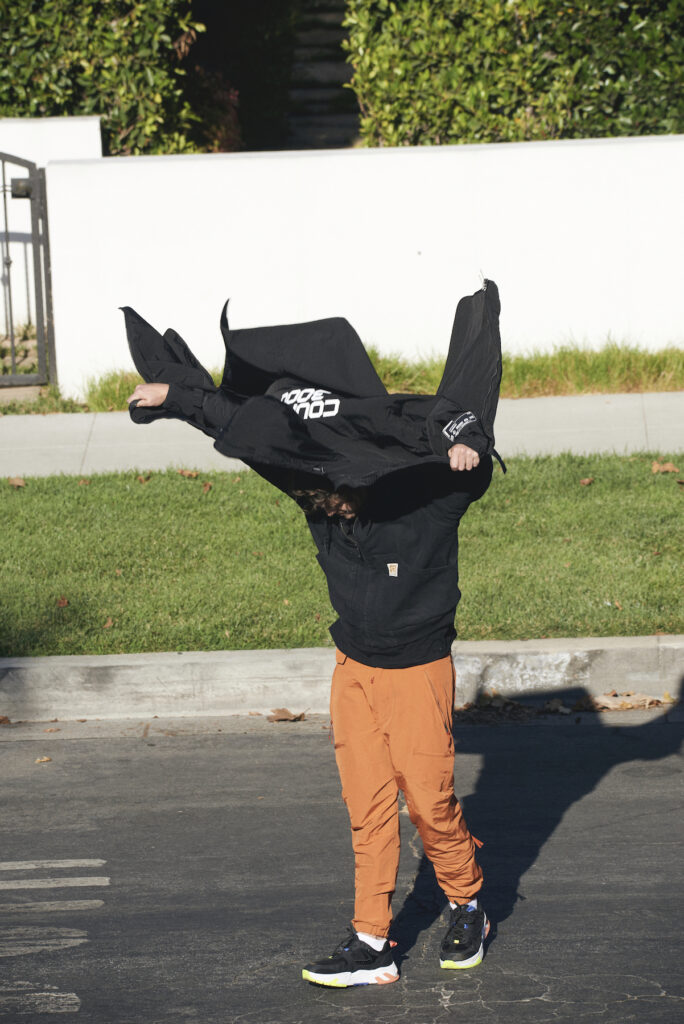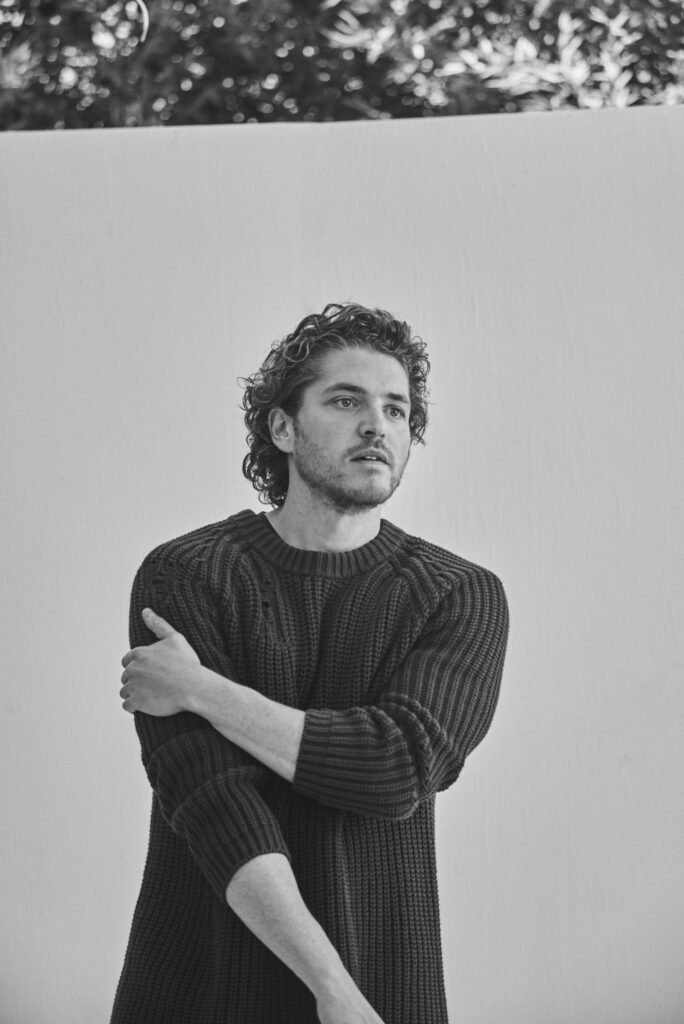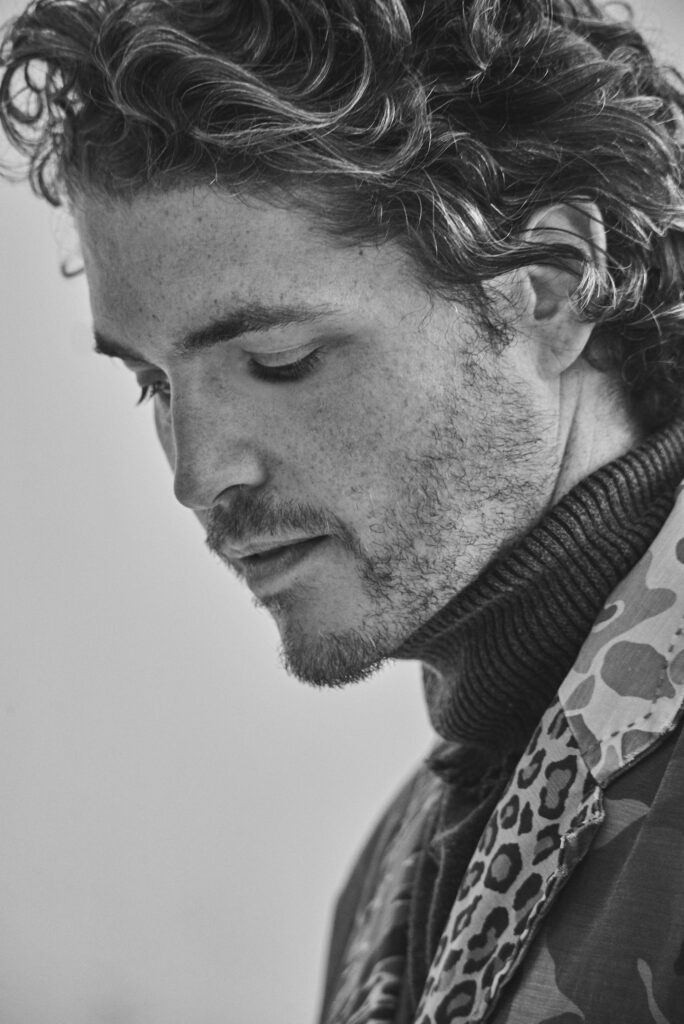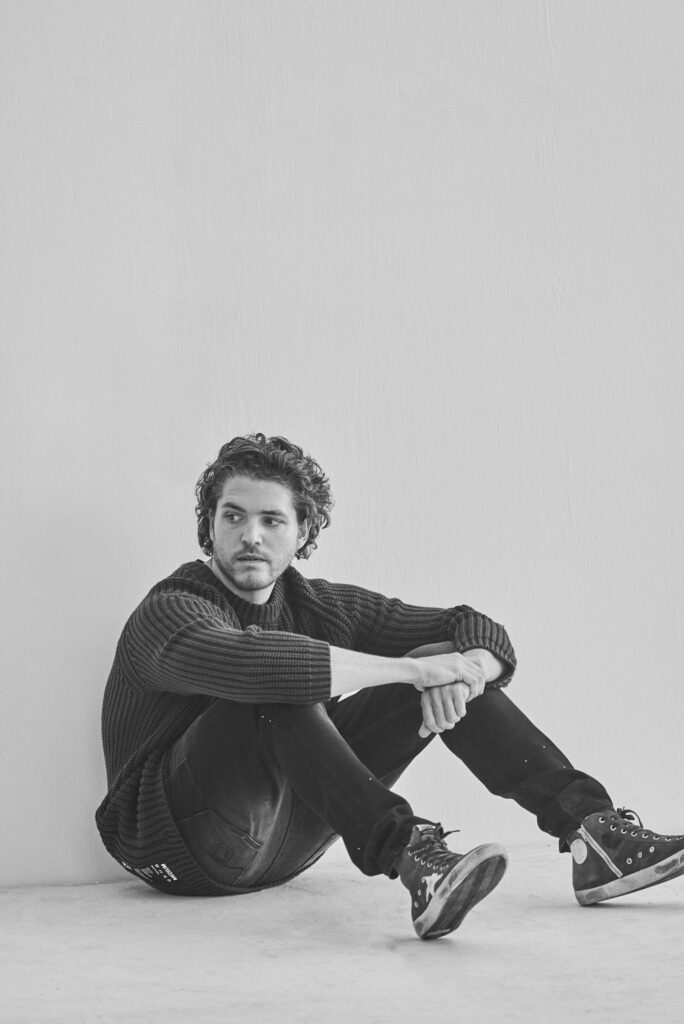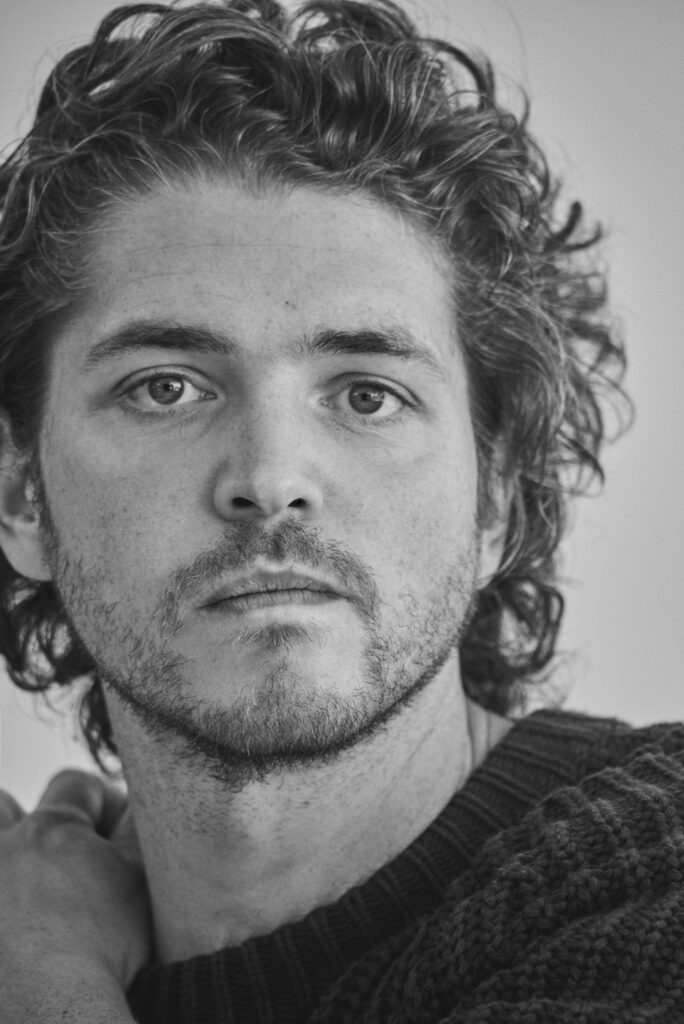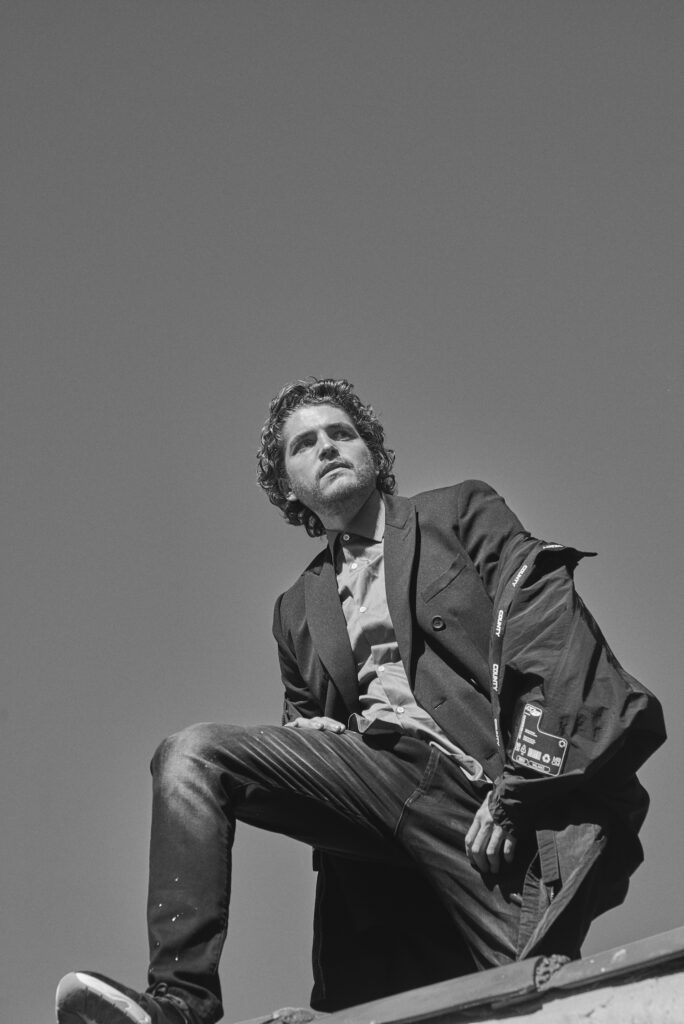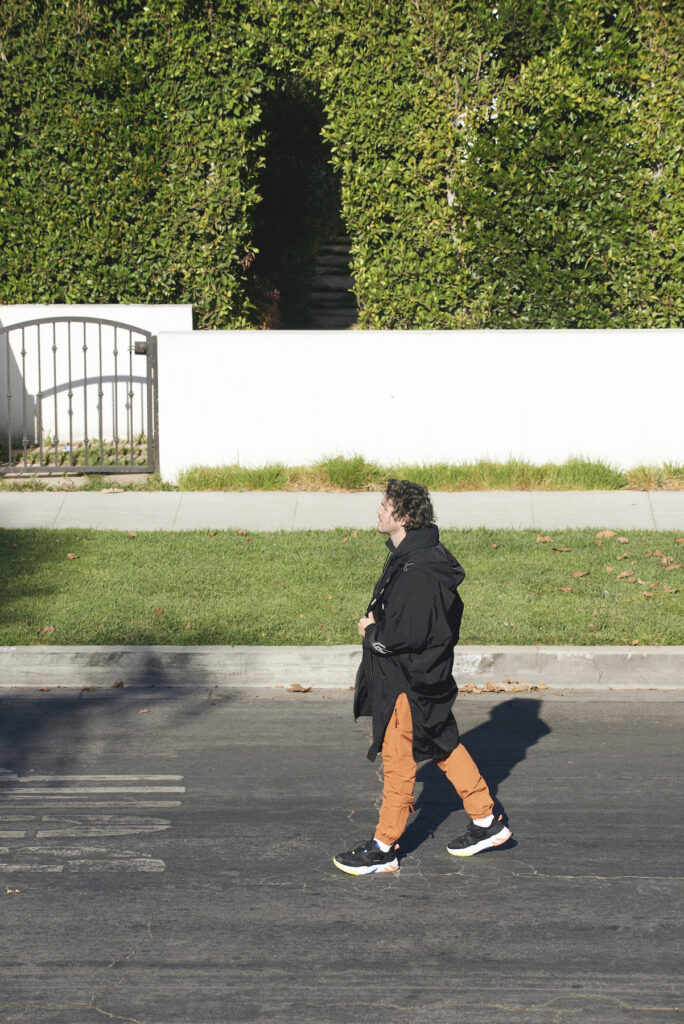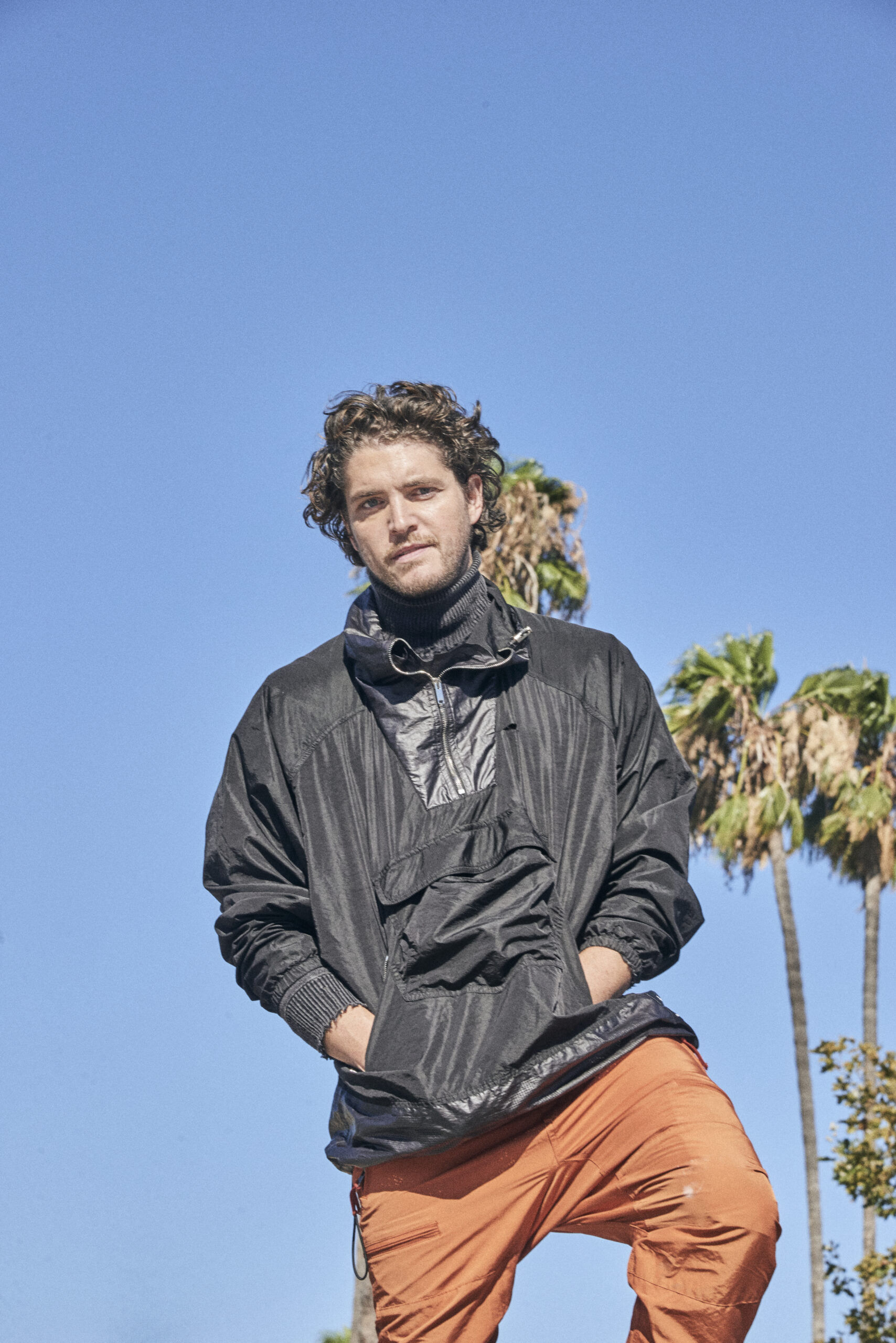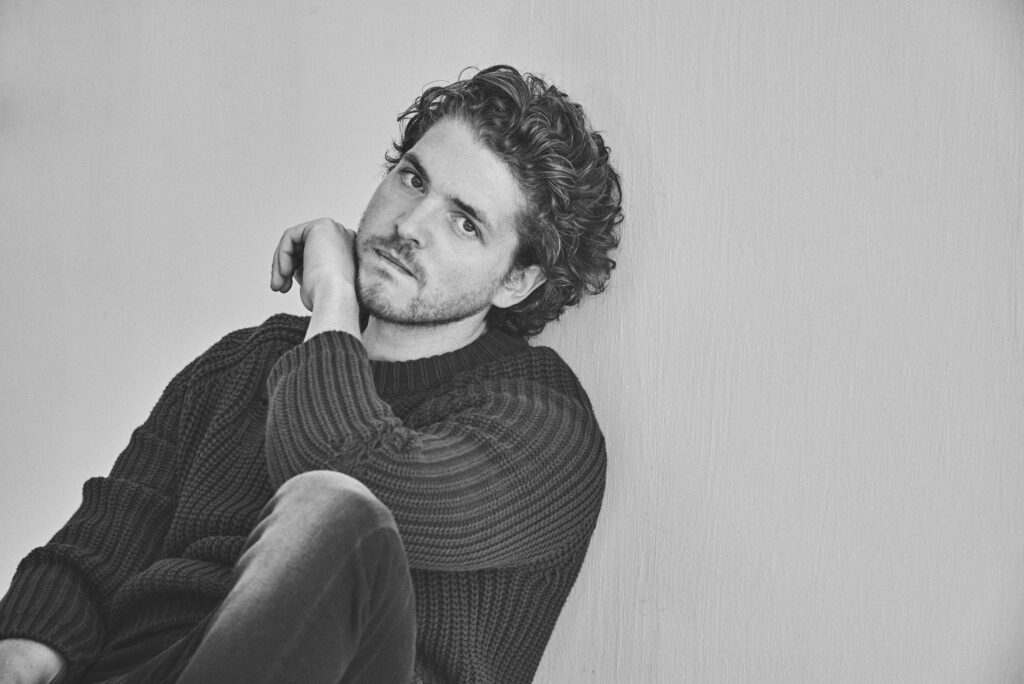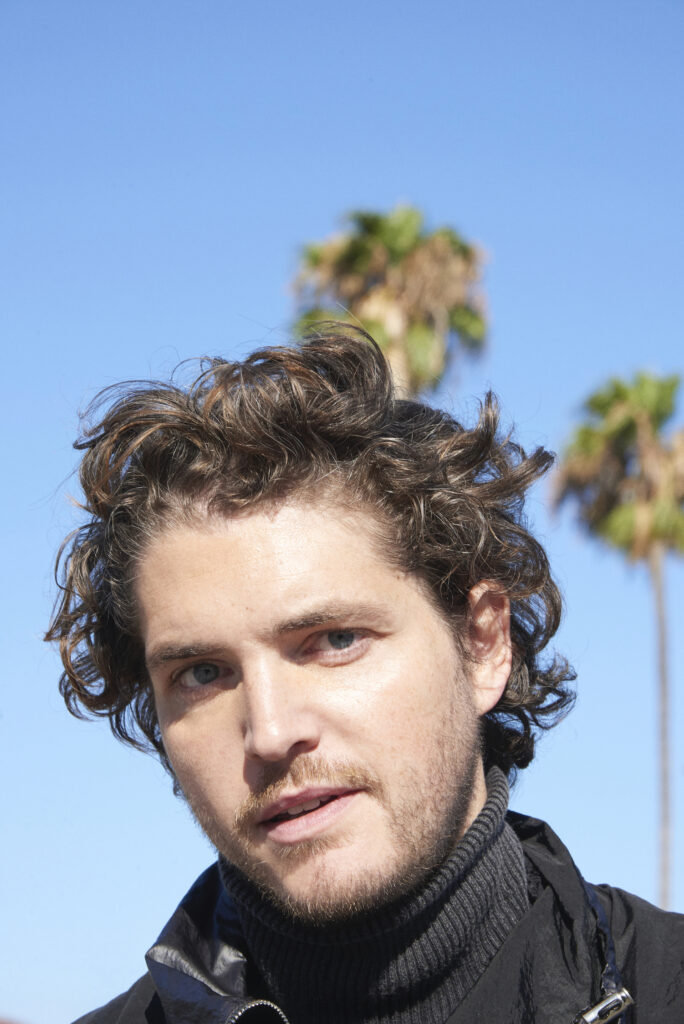
Philip Ettinger is an American actor, whose credits include starring alongside Ethan Hawke and Amanda Seyfried in “First Reformed” and “The Evening Hour,” which debuted at this year’s Sundance Film Festival. Ettinger’s most recent project is HBO’s “I Know This Much is True,” helmed by director Derek Cianfrance and starring Mark Ruffalo. Based on Wally Lamb’s acclaimed novel by the same name, it tells the story of the complicated relationship of two brothers (twins), one of which lives with paranoid schizophrenia. Ruffalo stars as the older iteration of the twins, while Ettinger inhabits the two characters in their youth. ContentMode spoke to the actor about the limited series and arguably, his best performance yet.
Q: Before we dive into questions about I Know This Much Is True, I must first say, bravo. This show is visceral, heart-wrenching, and achingly beautiful. It was a very emotional experience watching, I must say. I’m curious as to the type of feedback you’ve been hearing from viewers and the people around you about the show.
A: Thanks for saying that. This project is so close to my heart. It felt super emotional shooting it… it’s been really special. You know we’re going through such a fucking crazy time right now. You make a thing and have that whole experience of shooting it, and then you never really know how it might connect in the time of when it’s finally released. When I’m working on something, I’m so much in the state of not even thinking of it as being a product. Then, when it’s time for it to come out, it’s a bit of a mind fuck and scary. And this in particular was such a vulnerable experience. Everyone gave so much of their heart to it. It’s being released in a really crazy and heavy time, and the show deals with a lot of real and heavy things. But what’s been amazing is the people who have reached out to me to tell me how important it’s been to them. And how much of an emotional balm it’s been. People have vulnerably shared with me how this show has made them feel less alone in their own unique situations and emotions. Honestly, it’s been fucking beautiful to see how much we all can relate and share in the really difficult work of being a human being.
We’re all connected. It’s been a nice reminder for me personally in this isolating time of quarantine.
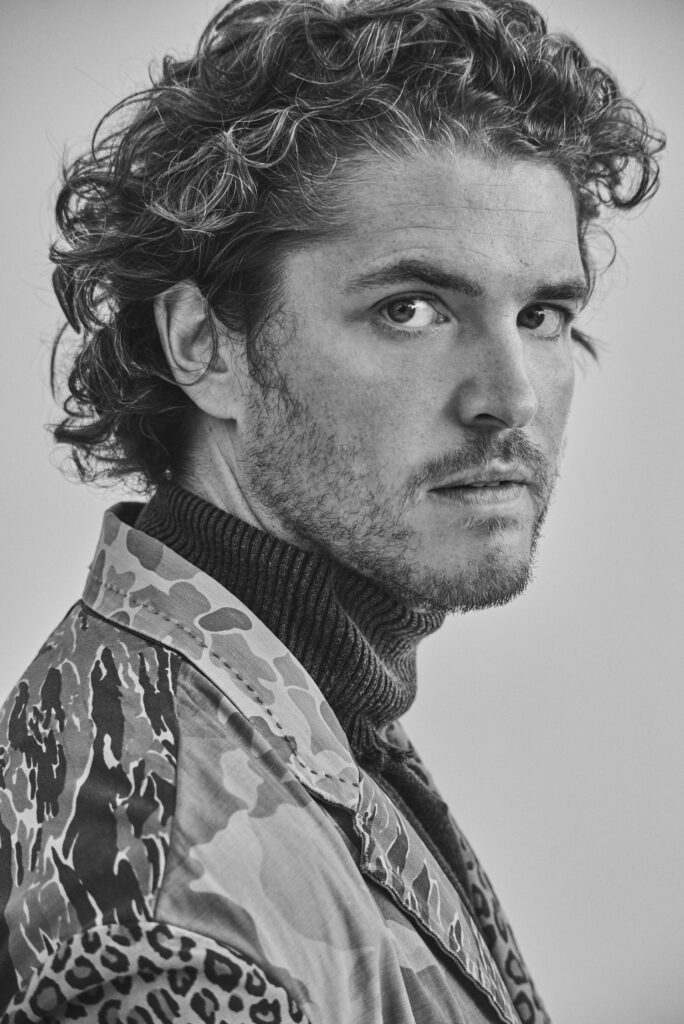
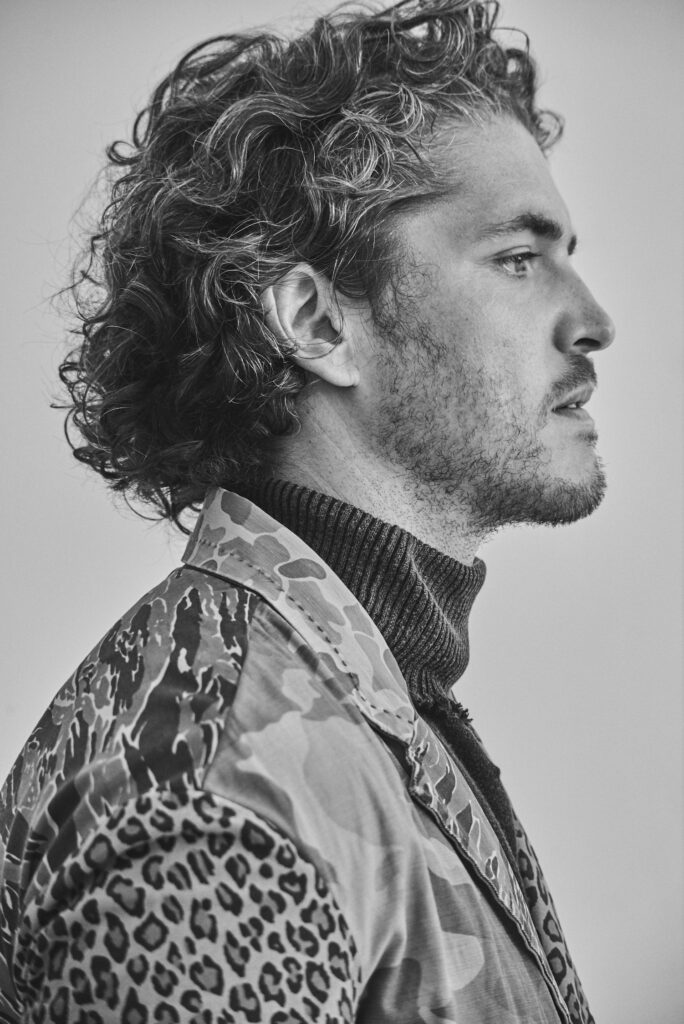
Q: Tell me about how this role came about. I know you’ve been a long admirer of Mark Ruffalo’s work, so this must have been a dream project.
A: The whole thing just feels kind of kismet. One day, I get a random email from a friend of mine who was going in to audition for young Dessa (younger Kathryn Hahn). This was before I really knew anything about it. She forwarded me her appointment with the script and said, “You should be young Dominick/Thomas.” All of young Dessa’s scenes were with young Dominick/Thomas, so I was able to see what it was like.
I’ve always looked up to Mark and have been compared to him in the past. I even wrote him a letter when I was in acting school and doing This Is Our Youth, which was the play he did in New York, and I expressed to him how much I connect to his work. He was doing Awake and Sing! on Broadway at the time and I went to see the play and gave him the letter. On top of that, I grew up with a brother who dealt with schizophrenic symptoms. I felt a really strong purpose to tell this story as real and accurately as possible. It’s rare when it happens, but sometimes things come along where it’s much deeper than it just being a job. The purpose for doing it is so strong and instinctual that I’m able to move through any fears or insecurities to do it. I went into this audition with a really strong sense that I was the person who was meant to help tell this story.
Q: Did you and Mark ever prep for the role together? I’ve read that you and him took a long walk around the Upper West Side before shooting started.
A: Yeah we did. The way it worked was Mark shot all of Dominick first and then took a month and a half off to gain about 50 pounds in order to play Thomas. During that time off is when I shot most of my stuff. We would text back and forth with ideas and before shooting began we hung out and read each other’s scenes together. Then Mark went off to shoot his Dominick side. Derek Cianfrance our director showed me a bunch of Mark’s dailies for me to kind of get a sense of what Mark was doing with Dominick, but when it came to Thomas, I was the first one to introduce what he’d be like. It was fucking scary because I wanted to be as instinctual as possible and to make my own unique choices. At the same time, I didn’t want to paint Mark into a corner because he’d have to evolve whatever I was doing into older Thomas.
About a week before I went to shoot, I met Mark on the Upper West Side at a diner. We talked for hours. I had been waiting in the wings for months, getting ready to take over when he took his break. I can be a pretty obsessive thinker, so at that point, I was pretty much bursting holding these two distinctly different characters inside of me, ready to express myself and let my Dominick and Thomas out. At the same time, I was absolutely terrified because the thing I’d been obsessing about and literally having intense symbolic dreams about was finally going to happen. Mark encouraged me to make it my own, and on the way out of the diner, I started to tell him about these crazy and intense dreams I was having that were kind of informing me who these guys were. He said, “I’ve been having dreams too. Let’s take a walk,” and then we just walked like 50 city blocks. We were just meshing our energies, ideas and physicalities, as well as sharing stories and quickly connecting on a really vulnerable level to each other. We were having very similar dreams. It was crazy and beautiful and a night I’ll always remember. Talking about it now makes me yearn to get back into more collaborative experiences again.
Q: If you don’t mind me asking, how emotionally intense was performing the roles of both Dominick and Thomas? Did you find one character more challenging than the other and were you able to separate the two performances, or were they always informing the other?
A: It’s hard to really describe it using words. The whole thing was one big instinctual and emotional experiment. It was kind of impossible to anticipate the best way to make it all work.
First day was completely trial and error. Mark shot each character separately with a lot of time apart, but I was having to do every scene going back and forth. The whole thing was very out of body and cathartic. Or more like in my body and out of my head.
It’s interesting, I’ve been doing therapy in quarantine and have worked a bit with childhood regression exercises and going back to a time when I was four or five. I’ll go back on impulse and really connect to the feelings I was feeling without too much awareness of social rules and insecurities and ideas of how I needed to be and act. Then, doing the same thing, but going back to the thirteen year old version of me, who at that point had been knocked around a bit and was very insecure and shut down and scared and had less trust and freedom of emotion. Both of them are very alive inside of me. Shooting every scene, I’d be Dominick and feel really repressed and kind of locked up and angry and insecure in my feelings. Then when I’d switch over to Thomas, I got to rip off the shield and filter that I’ve created to personally protect myself in my life and just feel my feelings and pain and fear and anger and fully be on my impulse in a safe environment. It was freeing and painful and blissful, and all of the feelings. I gave myself permission not to judge myself. Then, I’d go back into Dominick and the shield went back up. It was a lot of back and forth of that.
Honestly, it’s impossible to really explain it in retrospect. It was like one giant therapeutic experiment. It definitely changed me and gave me some different perspectives.
Q: Did you ever feel like your acting influenced Mark’s performance or vice versa?
A: It felt like one ongoing collaboration. We were taking from each other from the preparation through the shooting. But there was an ease to it all, which just shows how generous Mark is as a human being and artist. He didn’t have to invite me in the way he did. I’m very grateful for that.
Q: What was it like working with director Derek Cianfrance? Did Derek allow you to bring your own experiences and POV to your characters?
A: Derek is my emotional soul brother. The guy has so much fucking heart and just sets up an atmosphere of trust and love and challenges you to go deeper than any ideas you may have and to find the truth of every moment. He wants you to bring all of your heart and soul to the part. He’s done so much work and has thought so deeply about the characters and the scenes, but then challenges and almost expects you to surprise him. It’s all about, as he says, ‘trying to capture Halley’s Comet in every scene.’ Something that’s straight from impulse and truth and surprising and spontaneous and can never be exactly recreated. It’s all a big experiment and diving into the truth of every dynamic and relationship.
That’s exactly the way I love to work, so it was just a fucking dream to play like that.
But in order to work at that level, you need to have such trust in the leader and it needs to be such a safe environment. With Derek, I just felt so safe.
Q: Tell me a little bit about how filming two characters on-screen at the same time worked. How much of what the audience sees when Dominick and Thomas are together is CGI?
A: It’s crazy. The editing is incredible. Other than a few connecting shots, many of the scenes the two brothers are never in the same shot together. I think Derek wanted to make it feel as natural and un-CGI as possible, so he relied on the performances to connect the dots. The response has been that it feels pretty seamless and not a distraction, which is great to hear. We all definitely tried to avoid the trick of it all and really cared about making each brother his own three dimensional being.
Q: The show was shot on film as compared to digitally. What’s the difference that shooting on film makes to the final product and the audience experience?
A: It’s awesome. It was my first time shooting on film. There’s a heightened intensity to it all, because there’s a limited amount of time before the film rolls out. It’s exciting. I tend to work best and am able to commit more when adrenaline is a little higher and there’s a little more pressure. There’s also something more tactile about it all. It feels more activated and felt like we were shooting a movie instead of a TV show.
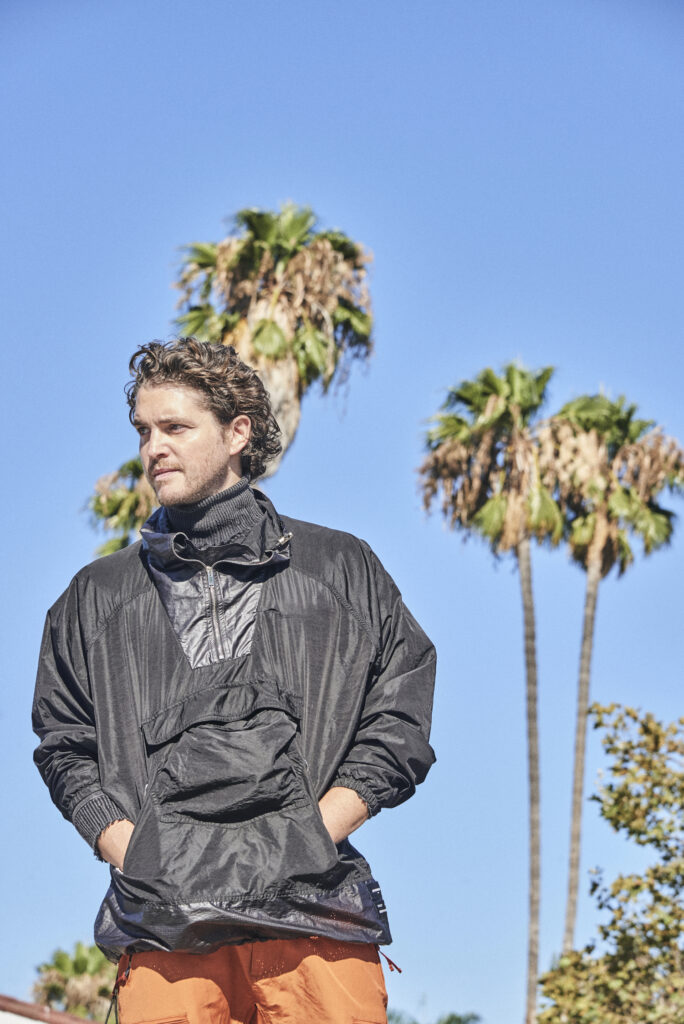
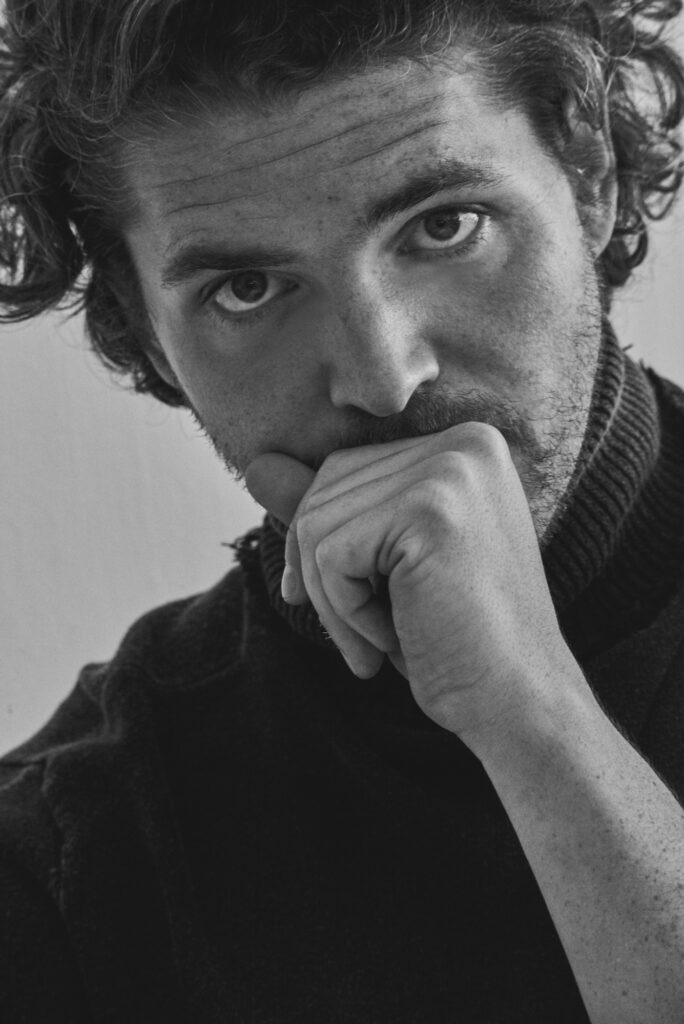
Q: I’ve read in other interviews where you’ve spoken about how your relationship with your own brother (who has a history with schizophrenic symptoms) influenced your performance. Can you tell me a little bit about this (if you don’t mind sharing)? How important was authenticity to you?
A: My brother is doing great now. It’s amazing. But there was a long time when I was growing up where he was suffering. I watched him struggle through a lot of thoughts and emotions inside of his head. On the flip side, he was probably the most honest, empathetic and connected-to-the-energy-around-him person that I knew. And has deeply affected how I see things in a really special way. I also watched my parents try and understand and protect and deal with it and help. And do the best that they possibly could under the circumstances. They were amazing. But I also watched them struggle and make questionable decisions in order to help in the only ways they knew how. I was also having my own experience.
What was so important to me about this show was to be able to express all sides of the situation and the nuance to it all. Often, when there’s mental illness in a family, everyone is doing the best that they can with the tools that they have. Sometimes the “crazy” one is the most tapped in and actually present and intuitive and available. Sometimes the ones, who on the surface have their shit together, have no idea what they are doing.
I think this was a way for me to express myself and better understand what repressed feelings I had having a brother with mental illness. One thing’s for certain: I don’t think anyone involved was interested in anything but navigating the truths and realities of these situations.
Q: Based on your own experiences with your brother, the director Derek added in a scene to one of the episodes. Can you elaborate on what this scene was?
A: Yeah, I told Derek a bunch of stories about me and my brother. There was a period of time when he was around 22 and in the midst of a mental break. I was around 9, and we shared a room. Some of the stories were scary, but a lot of them were really funny and beautiful. I observed my brother be so present and tapped in to the energy and people around him. Sometimes his thoughts would get away from him, but almost always, the impulse of the thought and the intuition he would have was so on point. It made me feel like he was often more present and truthful and sane than so many other people around me who seemed to be repressing, overlooking and complying to the rules of society and the pressures of fitting in and saying and doing the right and popular thing. I felt like he really took me in and saw me better than anyone else.
I told Derek about how often my brother’s energy felt so expansive and truthful to his feelings that it would be infectious to the people around him and magical to me. And then Derek added a scene in episode 4 where Thomas is feeling a lot of emotions and the best way he’s able to express himself is through unadulterated dance. It’s a moment that Dominick watches on and knows he’d never be able to be so free in his emotions to express himself like that. [Derek] told me he added that scene inspired by the stories I told him about my brother.
Q: At its core, the show is about the relationship between two brothers, but the show touches on so many different enduring themes. What about the story speaks most strongly to you?
A: We’re all trying to get through life in the best ways that we know how. We all have unique family situations, life expectations, and struggles and pains on different levels. The show and Wally Lamb’s novel just touches on what it’s like to be human and the possibility for growth and change when it may feel like it’s impossible. As he says, “But what are our stories if not the mirrors we hold up to our fears.” And another quote that seems to resonate more than ever: “With destructions comes renovations.”
Q: You must be very proud of this show and the reception it’s receiving. How did you feel seeing the finished product?
A: It feels a little surreal to watch. It’s hard for me to fully take in my own stuff or to judge it good and bad, but what I will say is that there’s so much heart in the show and I’m forever proud and grateful to be a part of it. And to watch Mark and Rosie and Kathryn and John and Melissa and Archie and everyone else and feel so connected to them. And to have my family watch it and have it inspire new conversations between us. It feels very healing in a lot of ways.
Q: Moving forward, what types of roles are you hoping to pursue? What’s the most important aspect of a project to you?
A: I don’t really know. I want to continue to work with people who inspire me and to feel a purpose with what I’m doing beyond ego and expectation. And to keep doing stuff that really scares me and to ultimately just find things that will help me evolve and gain some different perspectives. To continue to do things that make me feel connected and out of my own head.
I’ve been lucky to be a part of a few things where everyone involved is connected and on the same page and doing it for the right reasons, and the material is strong and every once in a while, when all those stars are aligned you can have moments of transcendence absent of ego and fear and judgement and you’re just riding on your impulse and intuition and heart. I want to keep chasing that.
Q: With the world in the midst of a pandemic and social unrest, what are you most hopeful for?
A: How connected we all really are even though the world feels divided right now. There’s so much pain and fear and anger right now, but there’s also a lot of change happening. And beauty. If there’s any silver lining to all of this loss, pain and suffering, I think it’s that it’s forced us to be more present with our families and loved ones. And maybe break some habits that we’d never be able to break on our own. And slowed things down a bit. And forced us all to look inward and to take a pause from all the fast and constant external validation so many of us think we want or need. I’ve witnessed thousands of people coming together to support each other and to stand up to injustice. This time has been traumatic on many levels for everyone, and I’m sure there will be long term effects of that, but also I’m excited to see the positive effects and positive changes this time may cause. In a way, it felt like we needed a bit of a reset and recalibration to really make some changes.
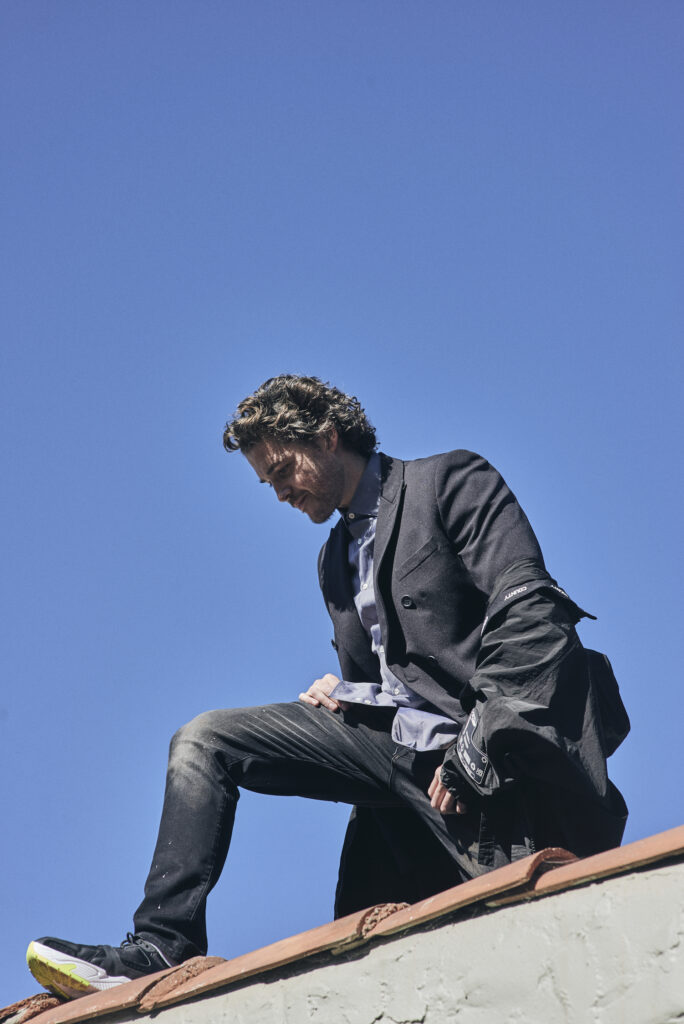
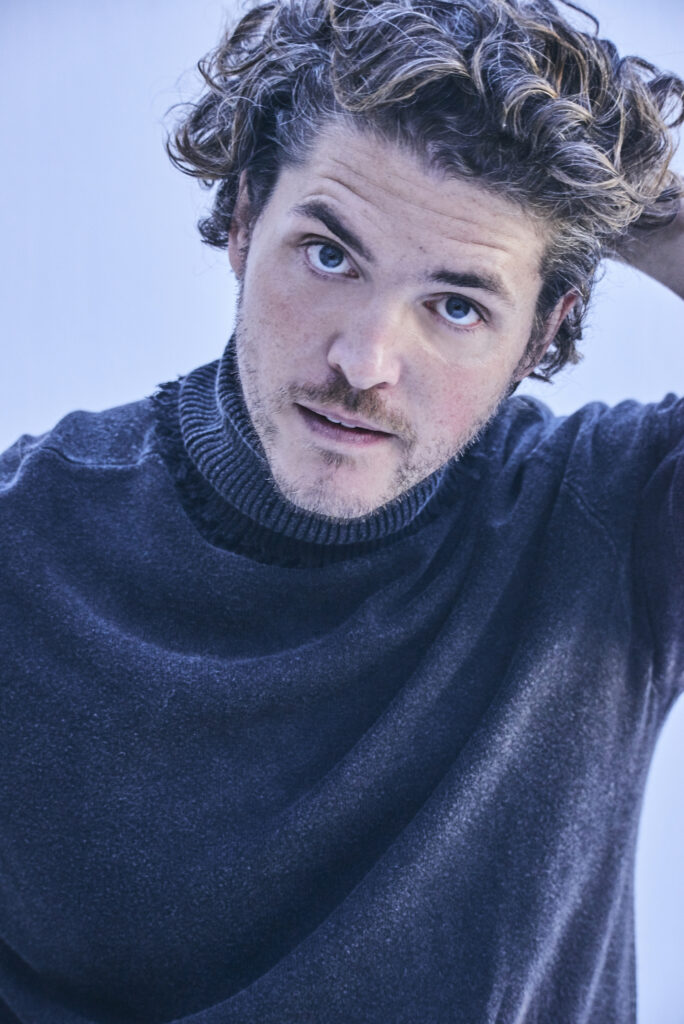
Quick Qs
Q: If you weren’t an actor, what would you be?
A: Maybe a therapist? I’m endlessly fascinated in why people do what they do and how they do it. And don’t do things. And why. And the relationship between our conscious and unconscious bodies and minds. And the potential of evolving our thought patterns past or through our blocks and pain and traumas. I’ve also spent a lot of time working one-on-one with autistic kids and adults, so maybe that. Something to do with human behavior and connection and growth and expression. Or if I was taller and more athletically gifted, it would be pretty damn cool to be an NBA basketball player.
Q: Role model?
A: Literally anyone who’s able to get through life with continued kindness, open-heartedness, positivity and evolution.
Q: Pet peeve?
A: People giving advice to other people based on what they would want or how they would act or react, instead of taking in the other person’s perspective.
Q: Most slept-on movie?
A: This is not particularly slept on, but this conversation and question is making me think of The Devil and Daniel Johnston.
Q: The last thing you binged?
A: I’m a novice TV watcher. This past year and during quarantine is the first time I’ve really caught up on shows. Recently I’ve gone through Mad Men, The Affair – Maura Tierney’s so good in that. I just watched Normal People. I thought Paul Mescal was such a subtle and good actor in that. Oh, and In Treatment. I love In Treatment. I just heard that they may be bringing it back, which is exciting to hear. The nuances of two people in a room talking for a long time really does it for me.
Q: Dream role?
A: Hamlet? Even though that scares the shit out of me and seems to be a cliche’d answer for an actor my age.
Q: What’s the best advice you’ve ever received?
A: To try easier. It’s not necessarily the amount of time spent working, but more the quality and headspace of that time.
Also, to stop trying to control the outcome of what and how I think I want something to go. Because guaranteed it won’t go exactly as planned and trying to force what I think is the best thing is quantifying and limiting the possibilities of what it could be.
And something that I saved that Mark actually said to me:
Hang tough, stay real, make your shots count when you get them and no matter what, keep moving. Just keep moving.

